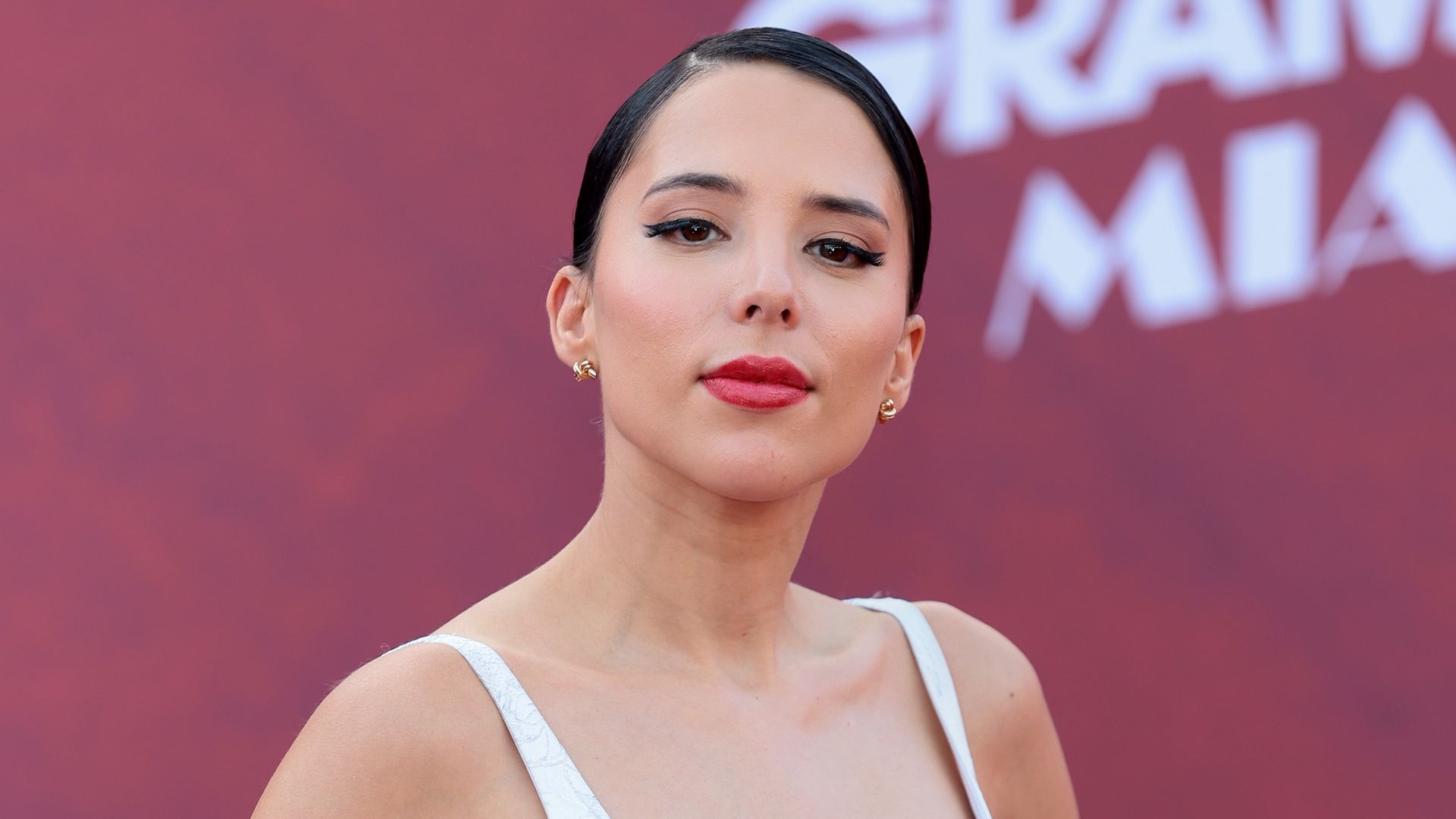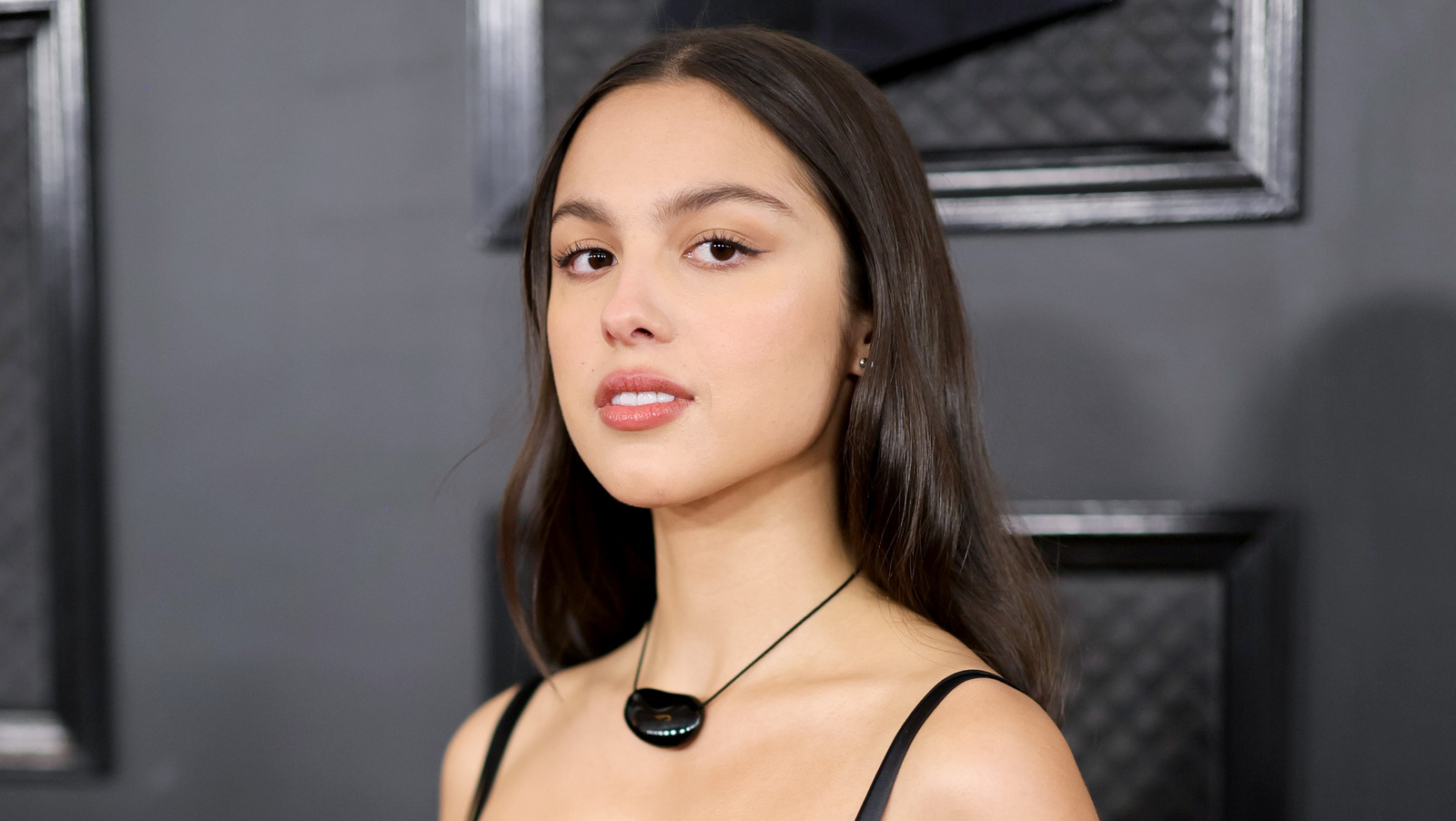[This story contains major spoilers from the season finale of Sweetpea.]
Starz’s dark comedy drama Sweetpea is based on the book series of the same name by English author CJ Skuse. But the TV series starring Ella Purnell isn’t so much an adaptation of the novels as it is a prequel detailing how her protagonist Rhiannon Lewis transforms from a meek administrative assistant who feels invisible into a calculated reporter who uses her job at The Gazette newspaper to throw her co-workers and law enforcement off her trail when her pent-up rage and grief leave a series of murder victims in her wake.
“In the book, she’s really a full-fledged serial killer,” writer and executive producer Kirstie Swain tells The Hollywood Reporter in the conversation below. “You don’t get to see any build-up to that, she’s [already] done it before. So we wanted to tell the story about what brought her to that point, what pushes her over the edge. What would happen if — in the U.K. it was Dawn from The Office — but if Pam from The Office went on a rampage because she was just sick of being overlooked?”
The answer to that question is to kill — but only really bad guys who deserve it. At least that’s how Rhiannon justified the three murders she executed in the show’s first five episodes. But when AJ (Calam Lynch), Rhiannon’s co-worker and the only character throughout the series who actually sees her, becomes her fourth victim in the shocking season finale, it unlocks a new part of Rhiannon’s identity that she’ll now have to grapple with — should the show continue.
“I think the part of Rhiannon that she’s a bit scared of does that,” explains Swain. “Until that point, none of the kills have really cost her anything. They’ve all sort of helped her feel better about herself and her life, and have helped her bloom and grow and achieve. We needed one of these kills to really cost her.”
Below, Swain talks about crafting Rhiannon’s origin story, changes to the characters from Skuse’s book and the critical response to season one while looking ahead to what the future might hold.
***
How did you approach the adaptation and what are some of the biggest changes between the book and the show?
It was a really long process. It kind of coincided with COVID, so that’s what caused it to take a long time. I started reading the book and then putting the book aside and just writing, working out what I could take from the book, what I could leave there. We went through quite a few processes to try and get the right story, because it ended up being a bit of a rape revenge [plot] for a while, and we moved away from that because I feel like that’d been done. We’ve seen a lot of women being sexually assaulted onscreen and we wanted to move away from that. We got to a point where we wanted to tell her origin story because in the book, she’s really a full-fledged serial killer. You don’t get to see any build-up to that, she’s done it before. So we wanted to tell the story about what brought her to that point, what pushes her over the edge. What would happen if — in the U.K. it was Dawn from The Office — but it Pam from The Office went on a rampage because she was just sick of being overlooked?
The series really hinges on audiences identifying with Rhiannon and sympathizing with her. How do you think you achieved that?
We were able to see her as an underdog. I think so many people relate to the idea of being overlooked. I certainly have felt that. My partner has felt that. My mom has felt that. I’m sure everybody has had that experience. And to be able to tell that story of her going from just a normal person to someone who’s kind of extraordinary, but not in the best way, that was a gift. Hopefully, the audience stays with her because she does do some stuff that is quite questionable. And I think it makes the audience question themselves as well.
Rhiannon’s high school nemesis Julia (Nicôle Lecky) is at the root of her angst. She also has a sister who isn’t the kindest to her, and there’s a female store clerk who treats her poorly as well, yet none of them becomes one of Rhiannon’s murder victims. Why does she only kill men?
I think the people who come across her at that time just happen to be men. I don’t think she’s just targeting them, because she was planning to do it to Julia as well. So it’s just the people that got in her way those times happened to be men. She never wanted it to be man-hating or even people-hating, it’s just people who deserve it. Not men who deserve it, people.
Is the Julia character from the book and is her being in an abusive relationship true to the book?
No. I think in the book she had a really nice husband and kids as well. We tried it with kids, and it was just a bit like, “oh gosh,” then you really don’t go with Rhiannon. I think as soon as there are children involved, you’re not really on Rhiannon’s side. Julia wasn’t in my first draft. She was a slow burn coming back in. I think in the book, there were lots of reasons why Rhiannon does what she does, but she has told herself the narrative that this is all Julia’s fault. And that really unlocked something for us because Julia didn’t see her, but in a strange way, Rhiannon didn’t see her by focusing all her attention on Julia and it eroded her self-worth. In the book, Julia’s not there for as long as she is in the show. But I wanted to tell the story of two women together, not in a catfight kind of way because I don’t think it is that way. It’s about two women getting to know each other in adulthood when they knew each other too well in childhood, in the wrong way. It’s their kind of re-education of themselves, which was really kind of meaty and nutty.
Marina (Leah Harvey) is another interesting character. Can you talk about starting episode four with her talking about the people she wants to kill instead of Rhiannon being the intro narrator as she usually is?
The split POV thing was something we toyed with through the development process, because it started off being a very single protagonist POV for the whole show. But then it felt like, wouldn’t it be interesting to see into Marina’s point of view and see Rhiannon as she doesn’t see herself? The whole idea of the unreliable narrator. She’s telling herself: I’m doing this because people deserve it, they can’t get away with it. But then Marina’s like: You’re breaking the law. It doesn’t matter if they deserve it, they might deserve it, but you can’t just go and kill them. So it’s a cat-and-mouse kind of thing in a different way, because I was very conscious of the cat-and-mouse idea of the characters in Killing Eve. You don’t want to be derivative, so just doing it in a fresh way.
I thought the shared experience of them both being overlooked was going to make Marina lenient on Rhiannon but she seems even more hellbent on making her pay for her crimes because of that.
I think she thinks Rhiannon is the one that got away. There’s an element of Marina not feeling seen and feeling underestimated by Rhiannon that’s kind of another nail in the coffin. It’s sort of a retelling of her relationship with Detective Inspector Diana.
AJ is the one person, naively, in Rhiannon’s corner right until the end. What does it say about her and who she’s become when she stabs him in the finale?
I think the part of Rhiannon that she’s a bit scared of does that. Until that point, none of the kills have really cost her anything. They’ve all sort of helped her feel better about herself and her life and have helped her bloom and grow and achieve. We needed one of these kills to really cost her. And that’s why, I’m afraid, it was AJ. I’ve been getting so many messages about him. Sorry! He’s such a lovely character. It was really hard to film for everybody. The prop master has theories of how to bring him back if there were a season two. It’s really affected people. So it’s this part of her that she’s awoken and we wanted to give the sense that that’s not going anywhere. That it’s here no matter if she pushes it down. She said, “I’m not going to do that anymore,” but she can’t retain the beast; she’s a beast.
The killings are quite graphic. What conversations did you have about how you wanted to approach those scenes?
Ella Jones, the director, had such a vision from the start about how it would look, and we felt like it should be graphic because female violence onscreen is something that’s often shied away from. You don’t get to see the graphicness that you do if it’s a man doing the killing. So we didn’t want to just pan away with the camera whenever she’s doing these really despicable things. We wanted the audience to be like, “Whoa, that is really quite disturbing.” Because it is disturbing and I think because you do get inside her mind and you do feel quite empathetic with her, quite sympathetic, I think you need to be shocked in those moments.
Also, we spoke a lot about Barry and Fargo as well in terms of those kind of scenes and the lucid feel of it all, how you don’t know whether to be sick or laugh. We always talked about that scene in Fargo where they put a leg in the woodchipper and it’s so disgusting but actually that’s what you’d have to do if you were trying to get rid of a body. So the stab in the neck at the start in episode one, that’s what would happen. And I’d written a lot of that in the script as well, in terms of the detail, especially of that scene and how, I think, quite viscerally, seeing all the blood and stuff, it’s like, there are real-life consequences of doing something like that. It’s not clinical, it’s very messy, and you have to live with the consequences.
How much of the book series did you cover in the TV series so far?
So in season one, it’s almost like a prequel to the book. So, lots more to come. She’s an amazing character, what a gift, and there’s so much source material as well.
Have you already written a season two or beyond that?
No, no, no, not yet. I don’t know if I can talk about that.
There have been mixed reactions from critics and audiences to the series. Have you read any reviews? How do you feel about the response?
The response has been amazing. I think with anything going out, you can’t please everybody, can you? So, I’m trying to ignore the not-so-nice ones and just keep rereading the nice ones (laughs). Everybody’s got an opinion, don’t they? And it is quite a show you can have opinions about because it is about some really uncomfortable stuff. But it’s just amazing that people are watching it. That’s all you hope for. You just hope that people will watch your show and enjoy it and be interested and maybe think about something.
***
Sweetpea is now streaming all episodes on the Starz app. Read THR‘s interview with Ella Purnell.














)





 English (US) ·
English (US) ·